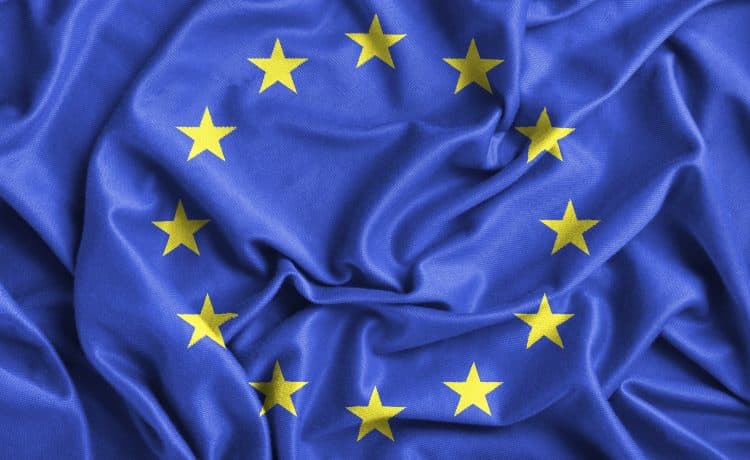In recent years, the legalization of cannabis has become a topic of discussion almost all over the world. This is a very divisive topic and in different parts of the world it can be addressed in various ways. Cannabis legalization isn’t just about recreational use. From medical research, we have discovered how cannabidiol (CBD), the non-psychotropic active ingredient of cannabis, can bring improvements to people with anxiety disorders and insomnia problems, but also in the treatment of chronic pain or to relieve the symptoms of Parkinson’s disease. [1]
In addition to the medical aspect, there are other important factors to take into consideration. The legalization of cannabis affects several aspects of our society, including public health and safety, social justice, and even the economy. Legalization would increase the revenue of a state that regulates its sale, creates jobs, and attracts tourists, as already happens in states where cannabis is legal. By legalizing cannabis, distribution can be controlled and regulated, consequently reducing crimes related to illegal dealing. Addiction would no longer be seen as the consequence of a criminal attitude, but as a pathology to be treated.
The debate on the legalization of cannabis is a topic that is treated in completely opposite ways in different regions of Europe. The laws in this regard can vary slightly or greatly from one state to another and only this data can help us to understand how a culture can have different thoughts and attitudes towards a delicate topic like this one.
The Debate on Legality
The legalization of cannabis, as already mentioned, does not only concern recreational use but also impacts very important aspects of society. When we talk about legalization, we enter into a range of political and social nuances. Mainly, when talking about legalization, the following concepts are taken into consideration.
- Medical use: numerous studies have now shown how CBD can alleviate the symptoms of serious diseases. From mild insomnia to chronic pain therapy, it is now scientifically proven that cannabis, if prescribed by a doctor and used diligently, can potentially help people in different health conditions.
- Decriminalization: the reduction of penalties for those found in possession of small quantities of cannabis or derivatives. So that we can treat consumers as consumers, not as criminals. Watch out! Decriminalization does not mean legalization, but only a reduction of the sentence, which can go from a criminal offense to a simple administrative sanction.
- Legalization: involves a more profound change in how the state manages and regulates the phenomenon of cannabis consumption. The doors would be opened to a market controlled and managed by the state, which legitimately recognizes its production, consumption, and sale, all regulated by clear and transparent laws.
These are the main aspects to take into consideration to better understand how to approach the debate on the legalization of cannabis. Each nation in Europe approaches the issue differently, reflecting different cultures, customs, political priorities, and social concerns. Obviously, the issue is more complex than that, standardizing the use of cannabis requires many legislative processes. The real challenge is balancing control and minimizing the risk to consumers in order to maximize the potential benefits.
An Overview of Cannabis in Europe
The cannabis situation in Europe is varied. Some countries have made considerable progress in this regard, while others remain on a more conservative stance.
Malta
The recreational use of cannabis is already approved. Maltese laws allow the consumer to grow his own plant at home for personal consumption. Associations can also be created where members can grow and consume cannabis. Malta is a great example of how legalization can be applied in the European context.
Luxembourg
Luxembourg is also following the same line, the details to this date are still to be defined, but the objective is to reduce the black market and provide safe and controlled access to cannabis.
Germany
The government is implementing plans for legalization. In doing so, Germany is trying to create a legal market to completely eliminate drug dealing and better protect consumers. The German government aims to legalize the sale and possession of cannabis for personal use, paying particular attention to the production aspect.
These are three virtuous examples of how a solution can be found that is positive for both the state and the consumer. These are the symptoms of the beginning of a change that could spread throughout Europe. These are notable steps forward if we consider that until a few years ago, cannabis was seen exclusively as a problem to be eliminated that caused crime.
In recent years, however, from a regulatory point of view, few steps have been taken on the path towards legalization. But some models of legalization and regulation have arisen in several states of the American continent, such as Uruguay, California, and Canada, which are starting to influence some European states, such as the countries mentioned above.
Switzerland
In Switzerland for example, the consumption of any narcotic substance is considered a crime, only the sale of cannabis with low tetrahydrocannabinol (THC) contents is permitted.
Denmark
With up to 50 grams of inflorescences or 10 grams of cannabis resin, there is a presumption of possession for personal consumption. This detention for personal use may be subject to a simple warning or a fine of around 70 euros.
Portugal
In Portugal, the situation is very interesting. Below the tolerated quantity of possession (25 grams of inflorescences and 5 grams of cannabis resin), consumption and possession are considered administrative offenses. If found in possession of a quantity that does not exceed the legal limit, the user will have to appear before a commission for the dissuasion of drug addiction. With three interviews the commission must evaluate whether the user is in a problematic situation or not. The commission can suspend the proceedings if the risk of recurrence is minimal, if the risk is moderate, it offers the user psychological support, if the risk is high, the consumer is sent to a specialized assistance center, and if he refuses treatment, he risks a fine of 25 to 150 euros.
Spain
The 2015 law on civil security classifies the consumption and possession of drugs (including cannabis) in public places as a serious administrative infraction, punishable by a fine ranging from 601 to 30,000 euros, while the consumption and use for the purposes of personal consumption in private places are not considered crimes. In Malta, a similar distinction is made: the use of cannabis is permitted from the age of 18, but it is strictly prohibited in public places as well as in any private place where minors are present. Infringement of these laws entails fines that range from 300 to 500 euros.
England
In England, the police apply progressive sanctions if found in possession of a small quantity of cannabis. In the case of a first offense, the police can dismiss the whole thing with a simple warning. In the event of a repeat offense, however, you may incur a fine of up to 100 pounds. The interesting and unusual aspect is that there is no minimum quantity decided by law, the minimum quantity allowed is at the discretion of the police.
The Netherlands
In the Netherlands, the directives of the Attorney General are very clear. If found in possession of 5 grams or less of cannabis, the case is dismissed, between 6 and 30 grams, you incur a fine ranging from 75 to 100 euros in the event of a repeat offense, from 30 grams onwards, you incur prison sentences. The production of cannabis in the Netherlands is considered a criminal offense, but in reality, since 1976, the sale has been tolerated in coffee shops, as long as the regulations called “tolerance criteria” of the Attorney General and the municipalities are respected.
– Commercial stock must not exceed 500 grams;
– No more than 5 grams can be sold per day to a single person;
– Coffee shops must not cause public nuisance;
– The sale of cannabis to minors is prohibited, and they cannot enter coffee shops;
– The sale of hard drugs and alcohol is prohibited;
– Advertising inside and outside coffee shops is prohibited.
The Dutch model, although it has worked for years, is based on rules that, at first glance, might seem contradictory. For example, distribution and sales are tolerated, but not production and distribution. [2]
Italy
In Italy, the history of cannabis is controversial. In the 1950s, Italy was the world’s second largest producer of industrial hemp, second only to the Soviet Union. Over one hundred thousand hectares of land, used mainly for textile purposes. Since the early 1900s, Italy has established itself as a protagonist in the cannabis cultivation market, seeing its peak in the 1950s and its decline immediately afterwards. In fact, in 1961, the UN single convention on narcotics was signed in New York, and from here began the era of prohibition, which spread like wildfire throughout the world.
Thus, in Italy, the legislation of the time downgraded hemp as an economic resource to a plant of transgression, also thanks to industrial development and the invention of synthetic materials.
Over the years in Italy, the law on the consumption and production of cannabis has made a circular journey to return to the starting point. At the beginning of the 1990s, the Iervolino-Vassalli law differentiated hard drugs from soft drugs, personal consumption and dealing and production were considered illicit, but the differences between the two categories of drugs were taken into consideration. For consumption, the sanctions were mainly administrative, and only recidivism or massive production and distribution led to imprisonment.
In 2006, however, there was an important modification, with the Fini-Giovanardi law, which no longer distinguished between light and heavy substances nor personal use from illegal dealing. This law also ignored the scientific evidence that proves the differences between hard and soft drugs, generalizing everything to try to provide a solution to the fight against drugs without realizing that these measures did more harm than good. The consumer was treated like a criminal, the drug addict was branded for life as a person to be imprisoned and not helped. A boy caught smoking a joint was treated like a serial drug dealer, moving large quantities of hard drugs illegally.
After eight years, the Italian Constitutional Court decreed this anti-constitutional law, thus, we returned to the Iervolino-Vassalli law, which is still in force, a step backwards that, in reality, could seem like a step forward towards understanding and legalizing cannabis. (3)
Conclusions
Unfortunately, the list of European countries where cannabis is completely illegal is long. Nevertheless, in many of these places, the law is moving to allow the use of CBD-containing cannabis for medical purposes, and this is a very important first step in order to start a journey of understanding and studying a plant that in recent decades has been seen only as harmful, when from an economic, industrial and medical point of view, it can bring many benefits to people who know how to use it.
References:
[1] Chagas MH, Eckeli AL, Zuardi AW, Pena-Pereira MA, Sobreira-Neto MA, Sobreira ET, Camilo MR, Bergamaschi MM, Schenck CH, Hallak JE, Tumas V, Crippa JA. Cannabidiol can improve complex sleep-related behaviours associated with rapid eye movement sleep behaviour disorder in Parkinson’s disease patients: a case series. J Clin Pharm Ther. 2014 Oct;39(5):564-6. doi: 10.1111/jcpt.12179. Epub 2014 May 21. PMID: 24845114.[2] https://www.senat.fr/lc/lc306/lc306.html#toc27
[3]https://books.google.it/books?id=FYqADQAAQBAJ&lpg=PT5&ots=uqTXhBBGpO&dq=la%20legalizzazione%20della%20cannabis%20in%20italia&lr&hl=it&pg=PT12#v=onepage&q&f=false












